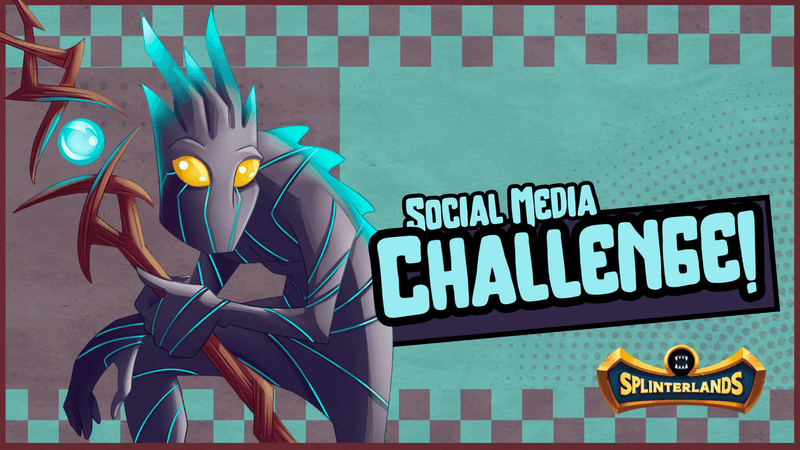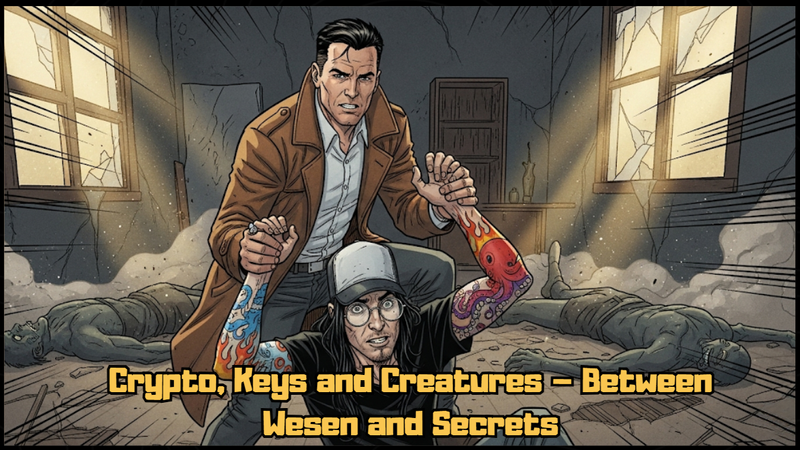The invisible chains of the system [EN/PT]
9 comments

Slavery, the cruelest act that one human being can impose on another. Turning a person into a tool for work, without pay, subjecting them to abuse and, worse, taking away their freedom. For personal gain, in the name of money and profit, slavery was a brutal practice in the past. But has it really ceased to exist? Today, it often appears in disguise, hidden in loopholes in the law, under the mask of legality, so that people continue to be exploited in the name of profit and the benefit of others.
Anyone who does not see this is blind. I do not mean this literally, but it is more than evident that the system is the master, and the masses are the slaves. Think about yourself: you wake up early, often without time to eat, and you already have to rush to face crowded, sometimes precarious public transportation. You arrive at work and give at least 8 hours of your day, a third of your life, in the name of profits that are not yours. At the end of the month, your salary hits your account and you realize that it barely covers your expenses. So you feel compelled to continue. After all, if you don't work, how will you pay the bills?
In the name of desperation and the needs of the masses, what do most companies do? They demand extremely high productivity, while remuneration is rarely fair. They know you are replaceable. If you no longer want to work, dozens of people are desperate for a job. We are slaves to the system. Slaves to the limited supply of jobs and the poor conditions imposed on the majority. Do you have the freedom to stop working? No. You need to pay the bills. The system also requires you to be a consumer. It requires you to work yourself to death to satisfy desires that, in most cases, are not even your own, but dictated by capitalism itself. We are slaves not only to the system, but also to our own mentality.
Do you think slavery doesn't exist today? Ask that to someone who wakes up at 4 a.m. to work in a factory, spends hours in traffic, works all day in almost automated activities, as if inside them were not a human being, but a system of repeated movements in the name of speed and productivity. Ask this man what time he gets home and what he can do after an exhausting day other than kiss his family, go to bed, and repeat it all again the next day.
The truth is that we live in modern slavery. The chains are invisible, but no less real. All supported by the law, the same law that, 200 or 300 years ago, legitimized literal slavery. The law, in itself, does not mean freedom; it only sustains something we cannot contest. The weight of slavery still exists; I feel it, you feel it, we all feel it. And this does not only apply to the “way of life” of ordinary people: look closer. Look at rural workers on farms, receiving only precarious housing in return. From sunrise to sunset, they toil like slaves of lack of opportunity. Look at the large factories in Asian countries, where thousands work 12 or 15 hours a day in inhumane conditions. Do you still think slavery doesn't exist? These are extreme examples to show what really happens, but you, well, you are not very different from these people on farms or in Asian factories, you are just one step away from them.
Many believe that paid work cannot be compared to slavery. But where is the freedom if we cannot free ourselves from it? Yes, we need to work, but that doesn't mean accepting to give up our lives, time, and health in exchange for crumbs. This will only change when everyone opens their eyes and realizes that we have always been chained. Today, the difference is that the chains are not linked to skin color, ethnicity, or religion, but to a need manufactured and imposed by the system itself.
Credits:
Translated: Deepl
Cover: created by

[PT]
Escravidão, o ato mais cruel que um ser humano pode impor a outro. Transformar uma pessoa em ferramenta de trabalho, sem remuneração, com maus-tratos e, pior, tirando-lhe a liberdade. Em benefício próprio, em nome do dinheiro e dos lucros, a escravidão foi uma prática brutal no passado. Mas será que ela realmente deixou de existir? Hoje, muitas vezes, ela aparece disfarçada, escondida em brechas da lei, sob máscaras de legalidade, para que pessoas continuem a ser exploradas em nome do lucro e do benefício alheio.
Quem não enxerga isso, está cego. Não digo isso de forma literal, mas é mais do que evidente que o sistema é o senhor, e a grande massa, os escravos. Pense em você: acorda cedo, muitas vezes sem tempo para comer, e já precisa correr para enfrentar o transporte público lotado, às vezes precário. Chega ao trabalho e entrega, no mínimo, 8 horas do seu dia, um terço da sua vida em nome de lucros que não são seus. No fim do mês, o salário cai na sua conta e você percebe que mal cobre as despesas. Então se vê obrigado a continuar. Afinal, se não trabalhar, como pagará as contas?
Em nome do desespero e da necessidade da massa, o que fazem a maioria das empresas? Exigem produtividade altíssima, enquanto a remuneração raramente é justa. Elas sabem que você é substituível. Se não quiser mais trabalhar, dezenas de pessoas estão desesperadas por uma vaga. Somos escravos do sistema. Escravos da pouca oferta de empregos e das más condições impostas à maioria. Você tem a liberdade de parar de trabalhar? Não. Você precisa pagar as contas. O sistema exige que você seja também um consumista. Exige que se mate de trabalhar para suprir desejos que, na maior parte das vezes, nem são seus, mas ditados pelo próprio capitalismo. Somos escravos não apenas do sistema, mas também da nossa mentalidade.
Você acha que não existe escravidão nos dias de hoje? Pergunte isso para alguém que acorda as 4 da manhã para trabalhar em uma fábrica, passa horas no transito, trabalha o dia todo em suas atividades quase que automatizadas, como se dentro de si estivesse não um homem, mas um sistema de movimentos repetidos em nome da rapidez e produtividade. Pergunte para esse homem que horas ele chega em casa e o que ele consegue fazer depois de um dia exaustivo a não ser dar um beijo na família, deitar para dormir e repetir tudo de novo no dia seguinte.
A verdade é que vivemos a escravidão moderna. As correntes são invisíveis, mas não menos reais. Tudo amparado pela lei, a mesma lei que, há 200 ou 300 anos, legitimava a escravidão literal. A lei, por si só, não significa liberdade, ela apenas sustenta algo do qual não podemos contestar. O peso da escravidão ainda existe, eu sinto, você sente, todos sentimos. E isso não vale apenas para o “modo de vida” das pessoas comuns: olhe mais de perto. Veja trabalhadores rurais em fazendas, recebendo em troca apenas moradia precária. Do nascer ao pôr do sol, eles labutam como escravos da falta de oportunidades. Veja as grandes fábricas de países asiáticos, onde milhares trabalham 12 ou 15 horas por dia em condições desumanas. Ainda acha que não existe escravidão? Exemplos extremos para mostrar o que realmente acontece, mas você, bem você não é muito diferente dessas pessoas das fazendo ou das fabricas asiáticas, está a penas um passo delas.
Muitos acreditam que o trabalho remunerado não pode ser comparado à escravidão. Mas onde está a liberdade se não podemos nos libertar dele? Sim, precisamos trabalhar, mas isso não significa aceitar entregar a vida, o tempo e a saúde em troca de migalhas. Isso só mudará quando todos abrirem os olhos e perceberem que sempre estivemos acorrentados. Hoje, a diferença é que as correntes não estão ligadas à cor da pele, à etnia ou à religião, mas à necessidade uma necessidade fabricada e imposta pelo próprio sistema.
Credits:
Translated: Deepl
Cover: created by




Comments